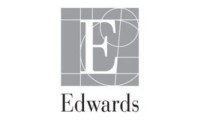-
As ICER places a spotlight on pharma’s price hikes, J&J, Roche and more hit back
- Source: drugdu
- 91
- December 13, 2023
-
With More 2024 FDA Filings Planned, Novartis Drug Starts Showing Blockbuster Potential
- Source: drugdu
- 102
- December 13, 2023
-
China Biopharm’s TQA3038 “siRNA” Phase I Clinic Completes Dosing in First Batch of Subjects
- Source: drugdu
- 102
- December 12, 2023
-
Gates Foundation Delegation Visits Zhifei Biological Products Co., Ltd.
- Source: drugdu
- 91
- December 12, 2023
-
FDA Approves Two Landmark Cell-Based Gene Therapies for Sickle Cell Disease
- Source: drugdu
- 95
- December 12, 2023
-
On Heels of ASH Data, Pfizer Eyes FDA Submission for New Hemophilia Drug
- Source: drugdu
- 90
- December 12, 2023
-
Edwards plans to spin off critical care business next year
- Source: drugdu
- 99
- December 11, 2023
-
Eli Lilly Announces Availability of Obesity Drug Zepbound at US Pharmacies
- Source: drugdu
- 182
- December 7, 2023
-
Roche Jumps into Lucrative Weight-Loss Space with $2.7B Carmot Buy
- Source: drugdu
- 100
- December 6, 2023
-
Elli Lilly Cancer Drug Lands Its Second FDA Approval This Year
- Source: drugdu
- 105
- December 6, 2023
your submission has already been received.
OK
Subscribe
Please enter a valid Email address!
Submit
The most relevant industry news & insight will be sent to you every two weeks.













